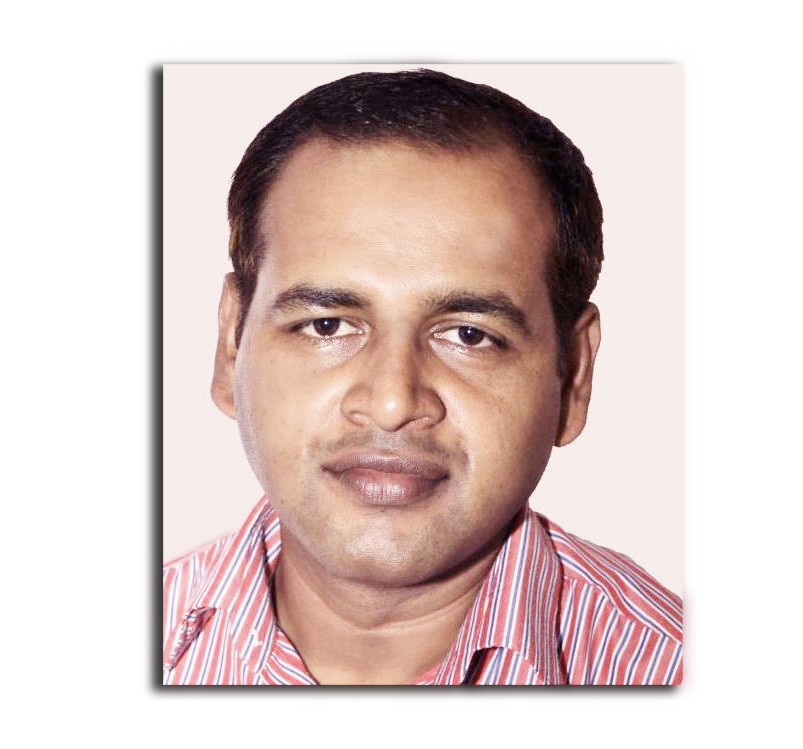By Gopal Khanal (KATHMANDU, 29 April 2021) – Amid a massive surge of coronavirus cases, with hospitals’ beds filling up, ventilators running out and lack of other required medical equipment, the government has enforced prohibitory orders in the Kathmandu Valley starting from today. The government should have imposed the lockdown earlier to break the virus transmission chain. Thought it is late, it still is a major move to control further transmission.
In fighting against the second wave of COVID-19, Nepal must learn both good and bad lessons from neighbouring India. Leaving aside the geographical size and population of Nepal and India, the commonality is that the coronavirus is spreading rampantly in both the nations. Nepal and India successfully fought against the pandemic during the time of first wave, but they were not well prepared to deal with the second wave.
European nations and the USA had witnessed unprecedented crisis then, lacked enough resources to combat the pandemic despite being the developed economies, but they learned lessons and managed all required resources anticipating the emergence of second wave though they are not still out of risk completely.
Catastrophe
During the first wave of pandemic, Indian Prime Minister Narendra Modi had said India not only took care of its citizen, it would also support the world to fight against the pandemic. India supported the USA and other European and neighbouring countries to control the transmission of the virus. Now, India is the worst-hit by the second wave, the scenes of catastrophe are very disturbing. There have been the shortages of oxygen, ventilators and hospital beds and people are dying without getting treatment in the hospitals.
Why did such horrifying situations emerge in India? There are clear answers, which claim the political parties didn’t take coronavirus as a threat to their lives. Firstly, Indian political parties held big rallies in different parts of India as elections of legislative assemblies of different states had already been declared. Prime Minister Modi himself addressed dozens of elections rallies and assemblies. Maintaining of social distancing cannot be imagined in such political mass meetings and rallies – be it in Nepal or India or any countries.
Secondly, since India is rich country in cultural rituals especially of Hindu religion, Kumbha Mela and other cultural rituals were celebrated with the presence of millions. Nepal’s former King Gyanendra and Queen Komal, who had attended the Kumbha Mela, had returned home with coronavirus. Thirdly, Indian government paid little attention in urging the people to follow the health protocols as the priority of all was the electoral politics. All the political parties focused their attention on election to woo voters. Since the country has the large population, it is not that easy to control pandemic. China has the bigger population than India, but its central command is strong, its directives are mandatory and should be obeyed by the citizens.
US President Joe Biden and Vice President Kamala Harris declared the significant support in these hardest days to stop the further transmissions to control the pandemic. President Biden spoke to Prime Minister Modi on April 26 on phone, expressing commitment that the US and India would work together in fight against the COVID-19.
The USA is providing a range of emergency assistance, including oxygen-related supplies, vaccine materials and therapeutics, the White House said. Prime Minister Modi expressed appreciation for the strong cooperation between the two countries. The two leaders said that the US and India would continue to stand shoulder-to-shoulder in the effort to protect their citizens and the health of the communities. Recollecting the India’s support in the first wave of COVID-19, when the USA was in the toughest time of ordeals with desperately fighting to save the lives of its citizens, both the President and Vice-President said they were with Indian government and people in these times of difficulty.
India and the USA are the strategic partners and they share common views in the global issues including their policies towards China. Even the QUAD, considered to be the latest version of NATO, has been formed obviously to contain the rise of China. But, in such time of crisis against the humanity, the USA, China and India should declare health emergency and make a common appeal to the world to support each other without preoccupied mindsets and pre-conditions. The powerful nations should show their humanity, they should not be engaged in the game of allegations.
India should accept the support of China as it has accepted the support of the USA, but the situation is indicating otherwise. China has been supporting India, Nepal and other nations too.
Nepal’s appeal
Nepal government has declared shutdown of the cities, where COVID-19 cases are surging making and breaking records despite the maximum efforts with the limited health resources. This should be strictly followed by the government and the people too. There should be proper coordination among the three tiers of government for the prevention and the treatments as well. At the border points, the holding centers and the quarantine facilities should be increased in proper consultations with the federal and local governments.
Nepal government has requested India and China to support in the fight against the pandemic. Since India itself lacks the required medicines and facilities, the support to Nepal cannot be materialised immediately. But China on April 27 announced to provide medical assistance to Nepal for the fight against rising cases of COVID-19. Wang Yi, State Councilor and Foreign Minister, made the announcement holding joint video conference in course of fighting against the pandemic. Other South Asian nations except India attended the virtual video conference.
Since COVID-19 is a global pandemic that has triggered health and economic crises of global proportions, all the countries should unite to combat it.
(Khanal is consulting editor at Gorkhapatra Corporation. [email protected])


